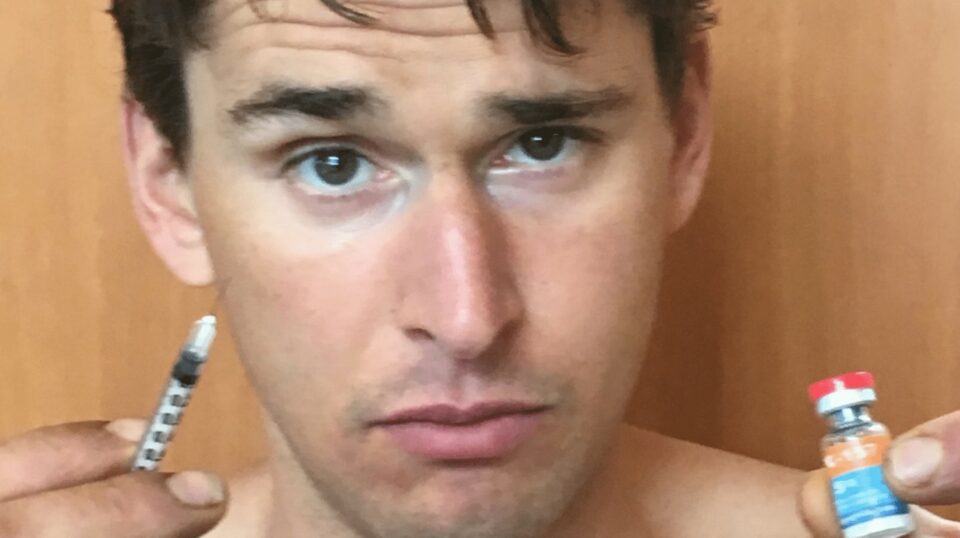Prostaglandin E1 (PGE1) and F2 alpha have been the norm in angiogenic growth factors (IGFs). But these natural compounds aren’t always perfect. For instance, PGE1 requires a capsule to remain stable, and F2 alpha is only around 30% bioavailability because of the degradation of enzymes. They might have discovered one in BPC 157 peptide; however, how do they compare?
What is BPC 157 peptides?
BPC 157 peptide has demonstrated promising results for treating various ailments. It was first extracted from the gastric juices of humans, and the name translates to in the form of the body-protection compound. It is thought to accomplish this via boosting the synthesis of signalling pathways. They are crucial in wound healing and regeneration of tissues and are also examined as possible treatments for various ailments.
What Does Clinical Evidence Say About BPC 157 peptides?
There’s plenty of evidence from clinical studies to support that BPC Peptides for treating different conditions. One analysis revealed that the BPC 157 peptide might be utilised to accelerate wound recovery in animals. Another study revealed that BPC 157 could be used to stimulate the growth of blood vessels for rats suffering from diabetes. There is evidence that suggests that bpc157 could aid in reducing those suffering from Crohn’s. However, it must be mentioned that there have been no human trials conducted on the subject, so further research must be conducted before we can say whether it is true. The primary benefit of bpc157 over other angiogenic factors is that it doesn’t appear to cause any adverse negative effects. Also, the patients have a lower chance of suffering adverse reactions to the BPC 157 compound than should they receive an angiogenic factor on its own. BPC 157 peptides has been shown to increase the production of platelets and functions and the number of natural killer cells that fight against cancerous cells and infections.
Mechanism of Action
BPC 157 peptides assist in the development of blood vessels. This is accomplished by binding and activating the growth factor. The development and upkeep of blood arteries depend heavily on these protein molecules. Through animal research, BPC 157 has been proven to boost the size and strength of blood vessels, repair them, and lessen inflammation. As a result, it is a feasible therapeutic choice for various conditions such as heart disease, stroke, and diabetes. BPC 157 could be helpful for those suffering from eye or kidney disease that lack blood flow. In these situations, surgeons can use BPC 157 before an operation; it could improve the chances of saving sight or increasing the chances of survival.
One of the drawbacks of BPC 157 peptides is that it isn’t actively working in our bodies for the duration of time after the injection. Therefore, scientists are working to find ways to extend the effects to ensure that treatments last longer. Combining BPC 157 with other compounds is one method, for example, insulin and the drug liraglutide (a medication for treating diabetes). The preliminary evidence suggests that the combination could aid patients in controlling their blood sugar levels following meals.
Recent research regarding Human Subjects with Cancerous Tumors
In a recent research study, patients suffering from cancerous tumors were treated with BPC 157 shots. The results were remarkable, and the tumors shrank substantially in size. This is an amazing breakthrough in the treatment of cancer. Numerous questions remain unanswered, including what frequency patients should be given injections of BPC 157, what dosage is recommended, and what kind of cancer they can treat, as well as others. More studies are being conducted to answer these queries and further explore the possibilities of this medication.
Possible Applications for BPC 157
BPC 157 peptide has shown promising results in the field of angiogenesis, which is the development of new blood vessels. The peptide is a potential candidate for use across various fields, such as treatment of tissue injuries, wound healing, and cancer treatment. While additional analysis is required to comprehend the full scope of the peptide’s capabilities, however, it is evident it is possible that BPC 157 could revolutionize the treatment of a wide range of ailments. There are numerous trials in progress to study the effectiveness of BPC 157 in patients suffering from heart disease, atherosclerosis, Parkinson’s disease, Alzheimer’s disease and stroke prevention and prevention of burns, Crohn’s disease and T2DM, MS, chronic renal failure (CRF) and osteoarthritis (OA) and a host of other conditions.
Conclusion
BPC 27 is a peptide with great potential for treating various inflammation-related conditions. Furthermore, BPC 157 peptides has been proven to stimulate angiogenesis which is the process of forming the blood vessel that is growing. This makes BPC 157 peptide an effective treatment for various diseases, including diabetes and heart disease. While further research is needed to prove the effectiveness of BPC 157, it holds immense potential as a treatment for various ailments. Additionally, discovering an additional purpose for BPC 157 will hopefully bring more interest from pharmaceutical companies that will help accelerate clinical trials.

